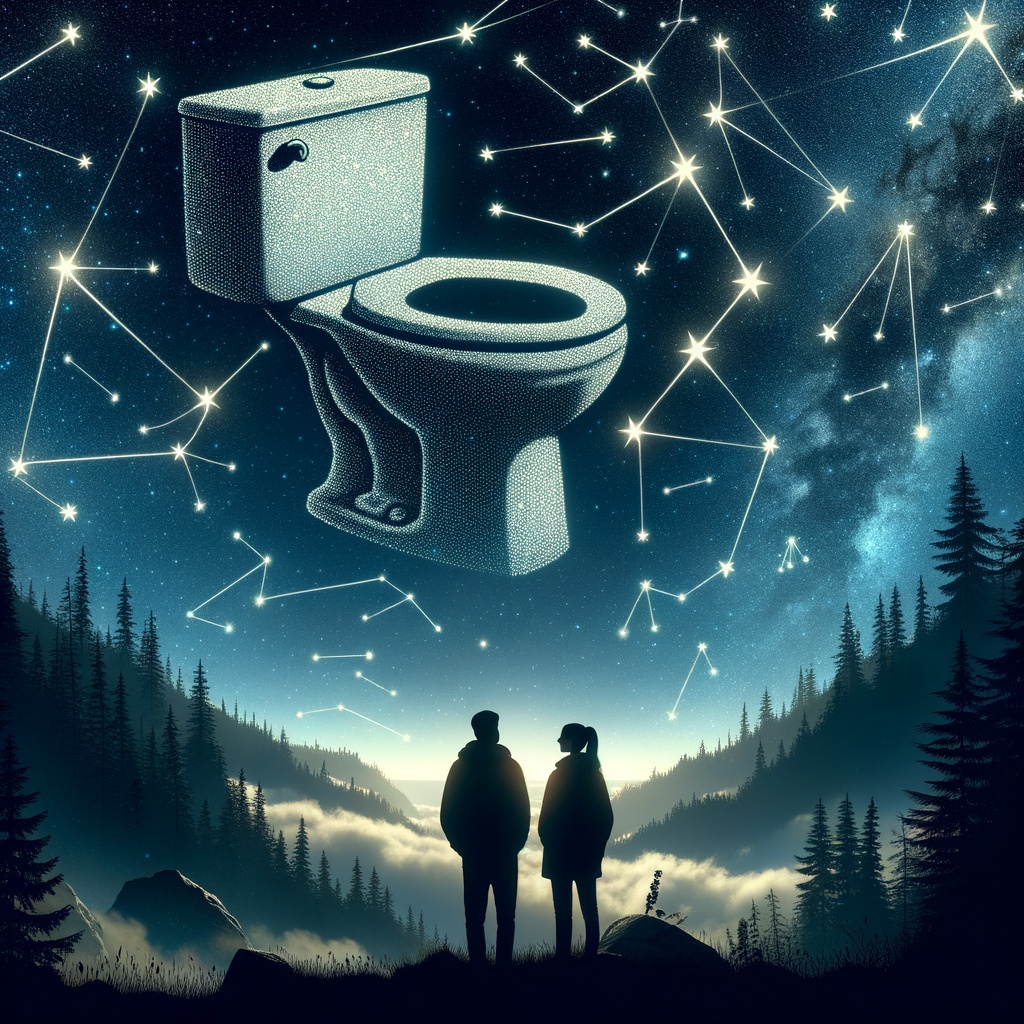When my brother and I finally carved out a weekend last summer to meet at an alpine lake in the Cascades, stargazing became a goal for our hike. Imagine what the night sky will look like up there, we mused, the wilderness area being far from the lights of even the nearest town, Twisp. We expected bright scatterings of stars. We expected the Milky Way. We anticipated awe.
As we wended our way through recent burn-out, crested to the lake, and set camp alongside the July mosquitos and mayflies, the relief that night would bring was on my mind. We shared a two-person tent, zipped in early to do crosswords, and set the alarms on our phones for midnight.
On past backpacking trips, our exhaustion from hiking had outweighed leaving the tent; the alarm would go off and we’d each agree that stars were stars, and that we should stay in our sleeping bags. But on this hike—damn our midnight selves—we were going to get out of the tent to look at the sky.
It felt more important, perhaps to me, because I saw my brother less often now that we were adults. Because it was the only backpacking trip we would make that summer. Because I expected the wilderness to provide a more transcendental experience than the suburbs.
When our stargazing alarm went off, we donned beanies and coats and stumbled out into the mild July night. We were at 8,000 feet, the sky was clear, and the stars were . . . underwhelming. I thought I could see the Milky Way, if I squinted.
Determined to make an experience of it, I went muddling around camp to find a prop for my phone to take photos of the night sky. I reached for what I believed to be a chunky piece of wood, possibly a good length of pine bark, picked the item up, and then dropped it, immediately, in horror. It took my midnight brain a moment to process: I had just picked up a human turd.
In dream-like disbelief, I returned to where my brother stood and tried to laugh it off as he laughed long and heartily like any brother would at such cosmic, comic misfortune. I tried to forget about the turd. I tried to forget that I did not bring hand sanitizer into the mountains. I took a photo of the Big Dipper, the way it tipped precariously between the summer larches, and compared star photos with my brother. I crawled back into my sleeping bag and tried to go to sleep. But damn if that turd didn’t haunt me and become the most memorable part of my hike. It was seared into the brain-space that I had expected to fill with stars.

I never intended to tell another living soul that I picked up human feces in a beautiful place in the Cascades. In truth, the experience stayed with me and provoked a different sort of wonder: at the impact we humans leave on these wild, distant places, not to mention the close places, and how we might reckon with travel when we expect to find something pure or enlightening and are met with something ugly or unexpected instead.
I still consider stargazing a worthwhile pursuit, which is to say, it will always be worthy to seek a sense of wonder. Chart the constellations; put the next meteor shower in your calendar. Look up, look outward, and look outside of yourself. And maybe prepare for a let-down, since these places we seek are not immune to the everyday pitfalls and waste that life creates. (Though I hope your let-down will look different than mine.)
In this issue, we’ve included a feature on summer stargazing and the many ways you might learn about the stars in our region: from visiting the planetarium at SFCC to using apps that can tell you which stars you’re looking at. We’ve compiled a list of local night hikes and camping spots that are great for one-night stays to catch the stars. Learn what to bring, where to go, and how to judge your light pollution.
I’ll still set my alarm to look at the stars the next time I’m in the backcountry. I feel the experience can only go up from here, after all.
- Lisa Laughlin, Managing Editor













